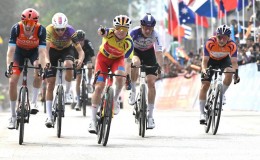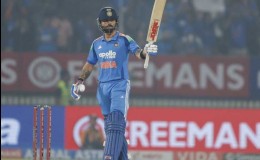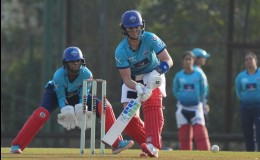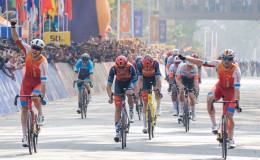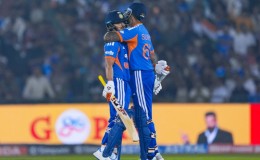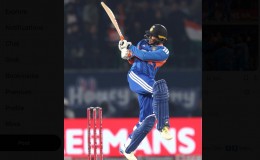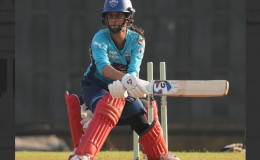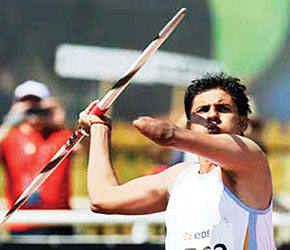 Adversity brings the best out of you provided you are prepared to fight and Devendra Jhajharia did the same. Having lost his arm in an accident, he never let his weakness come his way. He chased his dreams of representing India in sports and achieved the same, bringing glory to the nation at the highest levels.
Adversity brings the best out of you provided you are prepared to fight and Devendra Jhajharia did the same. Having lost his arm in an accident, he never let his weakness come his way. He chased his dreams of representing India in sports and achieved the same, bringing glory to the nation at the highest levels.
Son of a farmer, Ram Singh from Churu village in Jaipuria Khalsa hamlet, Devendra was passionate about sports from a very young age. All he wondered about was that how could he make it big and appear on the front-page of leading newspapers. Representing India at the international stage remained his only goal and to achieve the same, he started practicing on the ground near his home, through the scorching heat of the Thar. His family supported him as best they could, but did not know much about the sport. From that modest ground in Churu, he went on to practice at the town-grounds in Kasab, where through the sheer weight of medals won at national events he forced himself on to the training grounds at NIS Patiala, Punjab for his international career.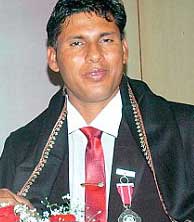 Quite interestingly, in the words of Devendra, “Spots is an art of an existentialist, sports is a theater where sinner can turn into a saint and a common man can also become an uncommon hero, where the past and the future can fuse with the present.”
Quite interestingly, in the words of Devendra, “Spots is an art of an existentialist, sports is a theater where sinner can turn into a saint and a common man can also become an uncommon hero, where the past and the future can fuse with the present.”
The year 1997 is a special remarked year when his coach Ripudaman Singh Aulak, a Dronacharya Awardee who specialised javelin throw, saw him in a school competition. He still remembers those five tedious years making his life for the rest of his life.
Even though the negligence of government and lack of support affected his training, he still continued with the help of his coach, friends and family members. The thrill of victory was evident when he described his victory at the 8th FESPIC games in South Korea in 2002 as follows: “It was my first international tournament. I was a novice then in the international level. Thus I was nervous initially. My first throw was measured as 55 metres. I won a gold medal there.”
More honours would soon follow for Devendra in the 2003 British Open. He said, “On 15th August, I participated in the British Open and bagged the gold medal. Here also I made a world record. Moreover this championship has not been won by any Indian except me till date.” Apart from the world record at 59.7 metres he also won a gold medal for the triple jump and silver in shot put over the two-day event organized by the London based Disability Sports England.
His progress from trepidation to confidence on the international stage is evident when we look back at Athens 2004 as by this time the initial nervousness about representing the country at the international level had spoofed and he was more confident and it resulted in winning the gold medal. “By this time my initial nervousness about representing the country at the international level wasn’t there at all. I was more confident and it resulted in winning the gold medal. It was a great honour to see the Tricolour unfurl at the same ground where the Olympics were held only a few days ago. Imagine, I was running in the footsteps of the great Steve Beckley,’’ said Jhajharia.
His disappointment at the general state of Paralympics sportspeople in India is evident as he recounts the events that followed his victories and the apathy of the government. He felt bad that the government didn’t react to any of his laurels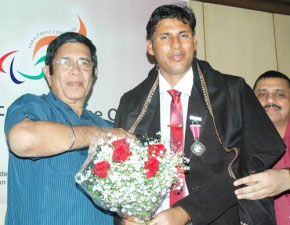 “There was no response or reaction from their (the government’s) part. Nothing at all. I approached everyone, even I wrote letters to the Prime Minister, the President, besides the Central Sports Ministry and Human Rights Commission but to no avail. It wasn’t a personal issue rather an issue that represented the condition of the Paralympics sportsmen all over the country.”
“There was no response or reaction from their (the government’s) part. Nothing at all. I approached everyone, even I wrote letters to the Prime Minister, the President, besides the Central Sports Ministry and Human Rights Commission but to no avail. It wasn’t a personal issue rather an issue that represented the condition of the Paralympics sportsmen all over the country.”
In the words of his father, ‘‘Devendra is only a Class-IV employee with the Railways. Our resources are limited. The governments keep saying they will give special attention to persons with handicaps. Look how they are treating.’’
What followed was a pitched battle for recognition between him and the government that lasted between 2004 and 2010, sucking the best years out of him, while Railway held him on to a job as a fourth class employee. A cash prize of a few lakhs- pittances in a sport where other countries spend millions and an Arjuna award was a reward for his persistence with the Government and for defying the odds. Yet he still managed to bag another international gold medal in that time-span.
He fondly thanks to Indian Railways which allowed him to practice throughout the year. He shows his anger towards corporate sectors by stating, “I asked for the sponsorship 3-4 times but they weren’t much responsive. So I left pursuing them. I think that the private sector has more money and resources to support sports unlike the state and central governments but unfortunately the former hardly reciprocates when we approached them.”
Despite all the hardships that Devendra faced and continues to face, he brims with hope to see a newer and brighter dawn for Indian Paralympics sport. He has not given-up on the general public that is zonked over cricket and ignores such stories of triumph against adversity.
He thanks the Indian Government which felicitated with the prestigious Padma Shri Award. He is still active and now training the other Paralympic athletes as a National Coach in Paralympic Committee of India. He is also in the Selection Committee of PCI. He feels humbled and gives thanks to the PCI, which gives him honor and a constant chance to serve India again as a coach.


